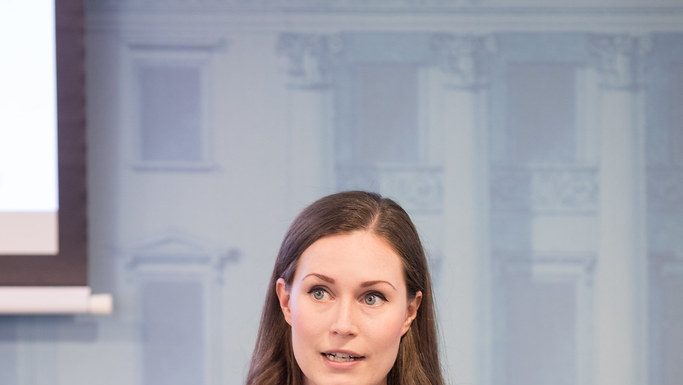Several years ago, I attended a dinner party (shrimp cocktail, chicken Kiev, and carrot cake—ehh). While chatting with the guests about this and that, a particularly distinguished-looking man asked me, “What would you really like to understand?”
I found the question intriguing. After giving it some thought, I replied, “What makes people do what they do?”
If I were asked the same question today—specifically about understanding people’s motives—I would answer, “Why are European leaders and EU politicians so obsessed with criticizing Israel, in general, and its war efforts, in particular?”
European officials have long seen themselves as the moral arbiters of the world stage—quick to issue statements, impose sanctions, and denounce perceived violations of international norms. They embody the notion of soft diplomacy, a kind of geopolitical Hippocratic oath.
Yet their habitual criticism of Israel, often couched in moral absolutes, stands in stark contrast to their near-silence on humanitarian catastrophes in places like Yemen, the Congo, and Sudan. These conflicts rarely provoke the same outrage, press releases, or emergency resolutions from Brussels.
Viewed from another angle, however, this relentless condemnation from politicians of every stripe can be seen as a backhanded compliment to the Jewish state. They simply expect more from Israel. They know it is a democracy built on humanistic values and grounded in the Judeo-Christian tradition.
This logic perhaps explains the vitriol coming from an ever-growing chorus of Spanish politicians, led by Prime Minister Pedro Sánchez, who has been relentless in his criticism. Sánchez has used strong language about civilian casualties and international humanitarian law, and he has pushed for tougher EU measures—up to and including reconsidering the bloc’s strategic partnership with Israel.
Spanish PM praises violent protests against Israeli cycling team: 'A just cause' https://t.co/aiF5Vp8e8J
— Ynet Global (@ynetnews) September 14, 2025
Their silence on other conflicts is telling. Although they would never admit it, these political leaders—and the EU establishment as a whole—recognize that no comparable human values can be expected from the twelfth-century throwbacks known as the Houthis. Why condemn the Houthis for their endless war, which has caused one of the world’s worst famines? It would change nothing. Any criticism of this savage movement would fall on deaf ears.
To be fair, the EU has made some effort to appear even-handed. For instance, former EU Commissioner for Crisis Management Janez Lenarčič called for an end to “indiscriminate killing of civilians and damage to civilian infrastructure,” referring to attacks by the Houthis and retaliatory air strikes by the Saudi-led coalition. Yet such statements barely count as more than throat-clearing.
And what can one even say about the inscrutable war in the Democratic Republic of Congo (DRC)? If ever there were an incomprehensible conflict, it is that one. Belgium, which once colonized this vast land, should take a particular interest in its fate. Yet the democratic traditions of the former colonial power are nowhere to be found in the Congo’s political life. Dictatorship has been the country’s legacy since independence in 1960.
Why condemn the countless warring factions? Despite the estimated four million deaths, the EU has managed little more than a mealy-mouthed comment from High Representative Kaja Kallas, who said the EU is working on a “stronger response” to the DRC situation—but that such action requires unanimous agreement from member states. If that is the extent of Brussels’ ambition, it is an example of truly shriveled purpose.
Another conflict that seems to have slipped past the EU’s best and brightest is the civil war in Sudan, which has raged since April 2023. It has caused famine and a catastrophic refugee crisis. Sound familiar?
According to the BBC, more than 150,000 people have been killed across the country, and some 12 million have been forced from their homes in what the United Nations has called the world’s largest humanitarian crisis. From the EU: near-radio silence, apart from the usual statements from the Council of the EU and the EEAS—deploring the loss of life, lamenting human rights violations, and calling for an immediate ceasefire.
Meanwhile, the anti-Israel activists—the Greens, the Socialists, and the various leftist parties in the European Parliament—continue to obsessively denounce Israel’s policies in Gaza and in Judea and Samaria. Ironically, in doing so, they subconsciously affirm a deep respect for the democratic principles that Israel itself holds dear.
This constant criticism underscores their belief that Israel, unlike so many others, should know better—that it operates within a moral and democratic framework they instinctively recognize as akin to their own.
Israel’s most strident critics inadvertently pay tribute to it as a modern, liberal democracy with a functioning judiciary—qualities that should resonate deeply with European values.
Perhaps it is time they showed a little respect for themselves.
If the hostages were just a convenient pretext for the "genocide" Israel had planned all along, why did they agree to the peace proposal? From day one, I predicted the war would end in 5 minutes if Hamas freed all the hostages and disarmed. What kind of "genocide" is that? QED. pic.twitter.com/SCq7HWR4Qg
— Maarten Boudry (@mboudry) October 12, 2025













